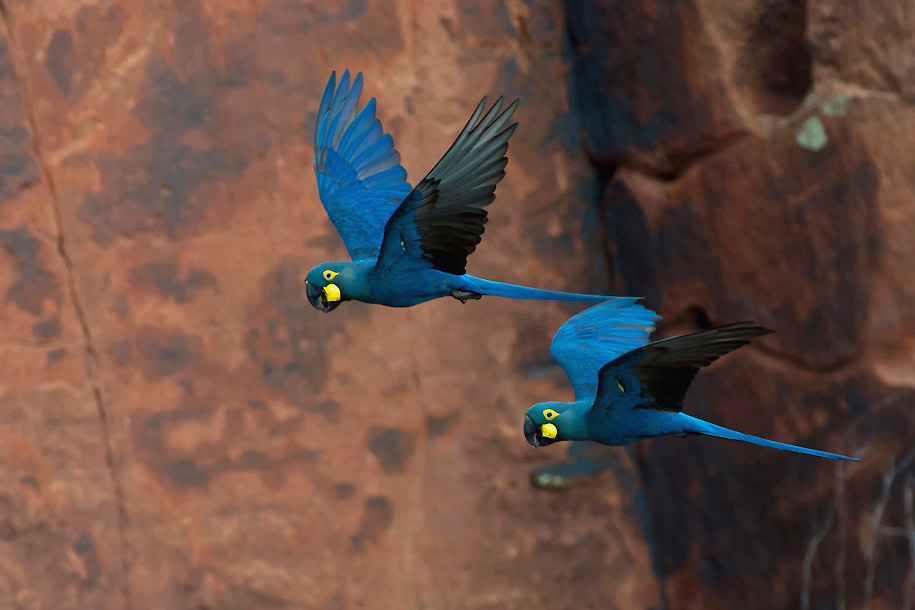Reintroduced Lear's Macaw pair breeds in Brazil
Three Lear's Macaw chicks have successfully hatched to a captive-born pair in their natural habitat in the Brazilian Caatinga, the Loro Parque Foundation (LPF) has revealed.
Lear's Macaw has been close to extinction in the wild as a result of poaching and deforestation, and has a worldwide population of fewer than 2,000 including captive birds. The chicks are the offspring of a pair bred in Tenerife as part of LPF's Lear's Macaw Recovery Programme.
The pair was among eight Lear's Macaws born at Loro Parque and reintroduced to the Caatinga in 2019. Among these eight birds, a pair formed spontaneously and had their first chick at the end of last year. Now, with the hatching of these three chicks, the pair has successfully bred for a second year running.

Lear's Macaw is currently classified as Endangered (Joao Quental / Flickr).
In 1990, with only 22 individual birds counted in Caatinga, the Lear's Macaw faced functional extinction. The species inhabits a unique biome in north-eastern Brazil, where poaching and deforestation were crucial factors in its decline. The pet trade has further contributed to the reduction of wild populations, with Lear's Macaw considered a lucrative species on the black market. In the 1980s, a group of the rare parrots were even smuggled into the UK in the petrol tank of a car.
The Loro Parque Foundation, in collaboration with the Brazilian government and other local institutions, developed the Lear's Macaw Recovery Programme in order to respond to this threat of extinction. In 2006, the Brazilian Government sent a pair of Lear's Macaws to Loro Parque to establish a breeding programme and reintroduce the species back into its native habitat. Only six months after arriving at Loro Parque, the first chicks hatched. Since then, more than 40 Lear's Macaw chicks have been bred.
Javier Almunia, director of LPF said: "This success reaffirms the relevance of zoo work in conservation, highlighting that animals raised in human care can indeed be successfully introduced to the wild. We are delighted to see this pair of Lear's Macaw not only return to their natural habitat, but successfully reproduce with three chicks in the same clutch – a rarity occurring in only 3% of wild pairs.
"The Loro Parque Foundation is proud to showcase the effectiveness of our species recovery programme for wildlife conservation. This remarkable case is the result of intensive efforts, including teaching the animals the necessary survival skills before reintroduction took place. It is a real breakthrough."
The hatching of the three new chicks is the latest positive step in more than a decade of recovery for the species, which has seen the wild population bounce back to 1,694 individuals in 2018. Efforts to save the species have included included on-site initiatives to combat poaching, ensuring farmers were compensated for any damage caused by the birds to their crops and even bee control. In collaboration with other organisations, LPF has conducted thorough field analysis, including measuring, georeferencing and quantifying the affected corn plantations to provide a precise and effective response.

